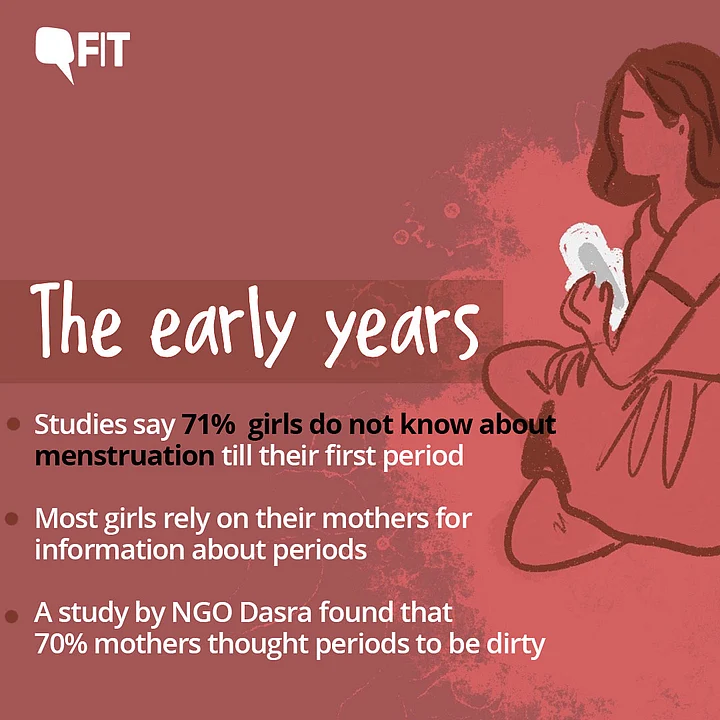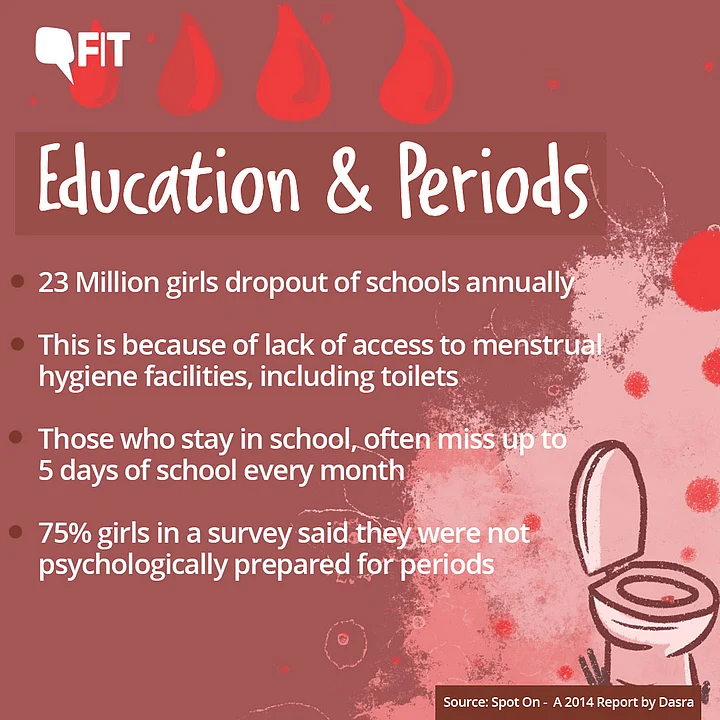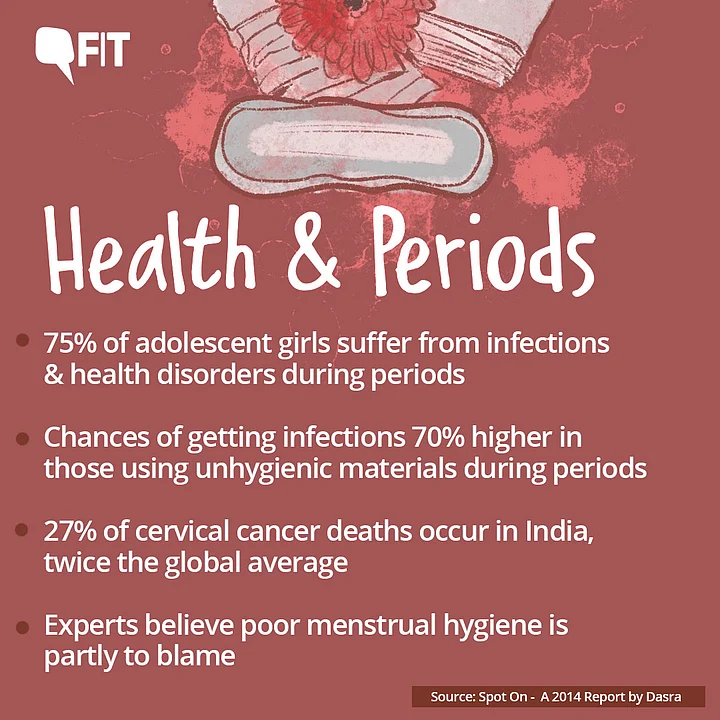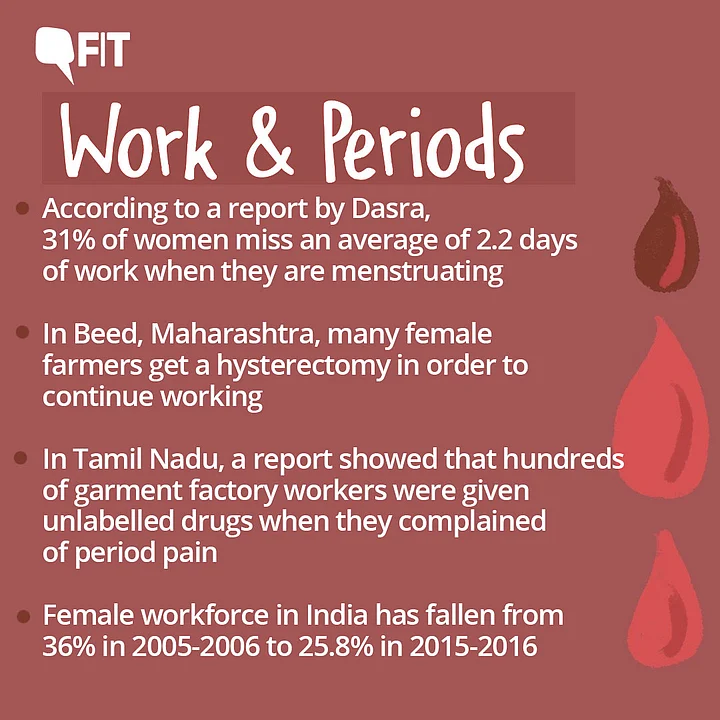India has 336 million menstruating women. Only 121 million of those have access to menstrual hygiene products. When a policy like period leaves becomes so widely debated and argued about, we need to pause a bit to see how menstrual health and equality are linked, by addressing the base reality of what women face when they menstruate. And more importantly, the impact, lack of period hygiene products, widespread misinformation and not having the power to make informed decisions about their own bodies have on the lives of women. Here’s some data showing the correlation between periods and what women have to go through.

It starts early - the cycle of misinformation and lack of access to the right information about menstruation. Studies show that upto 71% girls in India did not know about menstruation till they got their first period. And for most girls the primary source of information is their mother. While traditionally, girls have learnt about periods at home, the problem arises with 'what' they are learning about periods, as a social and biological process. A study by the NGO Dasra, found that 70% of mothers considered periods to be dirty.

It’s not just limited to perceptions about periods, but this also impacts how seriously women and young girls take their menstrual health, many of these factors driven by period poverty - lack of access to sanitary napkins, clean and separate toilets etc. Menstrual hygiene is part of the UN Sustainable Development Goals. Globally, puberty comes with the increased risk of girls dropping out of school, especially in developing countries. In India, 23 Million girls dropout of school every year due to lack of most basic facilities . And those who stay back in school, often end up missing 5 days of school every month. And it’s not just the lack of toilets and sanitary products that affects young girls. In a survey done by AC Nielsen, 75% of the girls surveyed said they were not psychologically prepared for periods. This included dealing with the associated taboos, shame, fear, pain and embarrassment they faced.

Lack of menstrual health management also leads to health complications. Experts believe that most period related disorders can be managed, with right menstrual hygiene practices. But, studies show that almost 75% of adolescent girls suffer from some period related infection or disorder, ranging from anemia to reproductive tract infection. India has the highest rate of cervical cancer deaths in the world, twice the global average and many experts believe that poor menstrual hygiene could be partly to blame.

While the debate around period leaves rages, a 2014 report by Dasra showed that upto 31% women are likely to miss an average of 2.2 days when they are on their periods. In unorganised sectors, there is next to no data, but poor menstrual hygiene remains a major concern, which often leads to women losing out on equal employment opportunity. In 2018, several publications reported an alarmingly high number of hysterectomies in Beed District in Maharashtra, linked directly to enable women farmers to work without losing a day’s pay. In Tamil Nadu, garment factory workers complained about being given unlabelled drugs, when women complained of period pains, leading to further health complications.

The number of women in the Indian workforce has fallen in the last ten years. While lack of menstrual hygiene is not the only factor that may have affected this drop, the issues women face - from period related illnesses to lack of basic facilities, are definitely an impediment for women trying to achieve their dreams and aspirations. The conversations around period leaves have centred around whether they promote equality. For true equality, a woman’s biological needs have to be taken into account, so that she can stay at home, go to school, college and work, without having to worry about how to deal with pain, infection, no period hygiene products or toilets.
(At The Quint, we are answerable only to our audience. Play an active role in shaping our journalism by becoming a member. Because the truth is worth it.)
